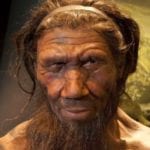 History
History  History
History  Weird Stuff
Weird Stuff 10 Wacky Conspiracy Theories You Will Need to Sit Down For
 Movies and TV
Movies and TV 10 Weird Ways That TV Shows Were Censored
 Our World
Our World 10 Places with Geological Features That Shouldn’t Exist
 Crime
Crime 10 Dark Details of the “Bodies in the Barrels” Murders
 Animals
Animals The Animal Kingdom’s 10 Greatest Dance Moves
 Movies and TV
Movies and TV 10 Box Office Bombs That We Should Have Predicted in 2025
 History
History 10 Extreme Laws That Tried to Engineer Society
 History
History 10 “Modern” Problems with Surprising Historical Analogs
 Health
Health 10 Everyday Activities That Secretly Alter Consciousness
 History
History 10 Dirty Government Secrets Revealed by Declassified Files
 Weird Stuff
Weird Stuff 10 Wacky Conspiracy Theories You Will Need to Sit Down For
 Movies and TV
Movies and TV 10 Weird Ways That TV Shows Were Censored
Who's Behind Listverse?

Jamie Frater
Head Editor
Jamie founded Listverse due to an insatiable desire to share fascinating, obscure, and bizarre facts. He has been a guest speaker on numerous national radio and television stations and is a five time published author.
More About Us Our World
Our World 10 Places with Geological Features That Shouldn’t Exist
 Crime
Crime 10 Dark Details of the “Bodies in the Barrels” Murders
 Animals
Animals The Animal Kingdom’s 10 Greatest Dance Moves
 Movies and TV
Movies and TV 10 Box Office Bombs That We Should Have Predicted in 2025
 History
History 10 Extreme Laws That Tried to Engineer Society
 History
History 10 “Modern” Problems with Surprising Historical Analogs
 Health
Health 10 Everyday Activities That Secretly Alter Consciousness
10 Things You Never Knew About Charles Darwin
Charles Darwin, “the Father of Evolution,” was born in Shewsbury, England, on February 12, 1809. His father, Robert Darwin, was a well-known high-society doctor with six children, of which Charles was the fifth. Both of his parents were from very prominent English families. His mother was related to the Wedgwoods of world-renowned pottery fame, and his grandfather, Erasmus Darwin, also hailed from a prominent English family.
Both families supported a Christian-based religion called Unitarianism that disavowed the Trinity. His mother, Susannah, died when he was just eight years old. For over a century, Charles Darwin has been venerated, yet here are some unknown facts about the biologist that put him under the light of humility, along with the rest of us mere mortals.
10 Darwin’s Family Tree Contains Incest
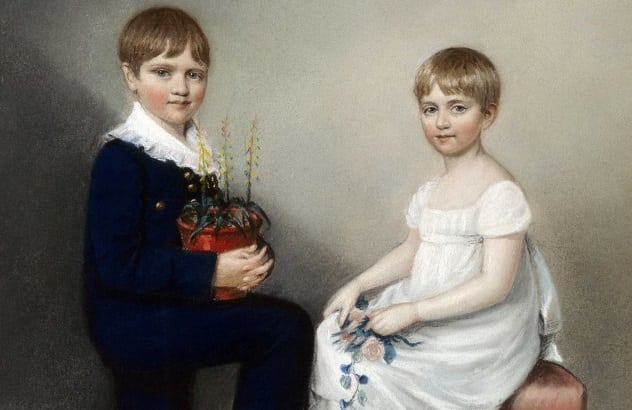
Charles Darwin is called the Father of Evolution, and his theory changed the world and how we view genetics. Ironically, though, that did not make him any more impervious to genetic defects than the rest of humanity. Darwin sired ten children in total. Of the seven who survived to adulthood, three never had any children in spite of very long marriages.
In fact, an in-depth study of the Darwin family tree in 2010 revealed a history of inbreeding (cousins marrying cousins), which is known to lower immunity to disease while increasing the chances of infertility.[1] For instance, his mother, Susannah, was born to third cousins, one of whom was Josiah Wedgwood, the original founder of the legendary Wedgwood pottery business. The Darwins were hardly the most egregious case of incest in history, but there was still enough inbreeding to increase their risk of certain side effects.
9 Darwin Originally Studied To Be A Priest
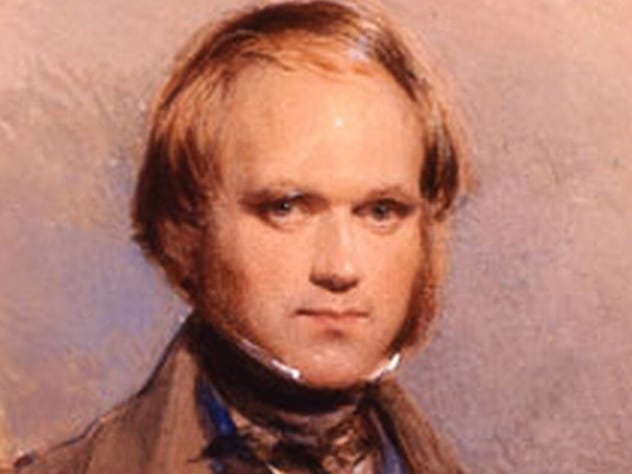
Darwin was enrolled to Edinburgh University in 1825 to study medicine but soon found that the thought of surgery repulsed him. This led him to change both schools and his major to attend the University of Cambridge and become an Anglican priest, something his father had hoped for.[2] His goal of obtaining a Bachelor of Arts degree included the study of some theology and mathematics but did little in providing any in-depth theological knowledge. Darwin graduated from the University of Cambridge in 1831.
Sometime during his studies there, he became intrigued by natural history, which ended his interest in theology, along with his desire to be an Anglican priest. Ironically, Erasmus Darwin had come up with a basic version of evolutionary theory long before his grandson published his version.
8 The Famous Voyage Of The Beagle

In 1831, Charles Darwin, with absolutely no training in the study of natural history, spent five years sailing around the world, including South America and the Pacific Islands, on the research ship HMS Beagle.[3] During the voyage, Darwin made innumerable geological and biological observations, some of which are still famous today. Looking back, the evidence strongly suggests that Darwin had already taken the theory of evolution his grandfather had spoken to him of completely to heart and believed in it entirely.
Most think of Darwin as an atheist, but he never became one and, in fact, continued to support a form of deism which holds the belief that God created the universe and then left to have no further contact with His creation. An originally nominal Christian, Darwin continued to play a leading part in the parish work of the local church for a few years, but by 1849, he would go for walks on Sundays while his family attended church. Later in life, he would assert that he was closer to an agnostic, and although he never became an atheist, he had long since rejected divine creation as put forth in the Book of Genesis.
7 Was Charles Darwin A Plagiarist?

In the 19th century, ideas such as evolutionary theory were considered heretical and could result in retribution from the Church of England. Darwin knew this, so he kept his theory quiet, only discussing it with close friends. That changed in 1858, when he heard that Alfred Russell Wallace had developed a theory very similar to his, and led directly to him prematurely publishing On the Origin of Species in 1859. Today, this may seem odd and even suggests a lack of confidence on his part. But contrary to popular belief, Darwin had by then assimilated a huge amount of data from the work of many of his contemporaries, including his chief rival Alfred Wallace, all of whom contributed heavily to his database.
Charles Darwin was 50 in 1859 and would write 18 more books, but not everyone in the scientific community holds him in such high esteem. The evidence seems to back up claims that Darwin intentionally held off publishing his book because he needed time to plagiarize the complete theory.[4] For example, in the 1830s, a man named Patrick Matthew wrote a book explaining natural selection, and it is said that Darwin later assimilated it as the foundation for evolution, without ever giving Matthew any credit. Many have contended that Darwin was, at best, a mediocre scientist who possessed a limited educational background.
6 Darwinism Based On Racism
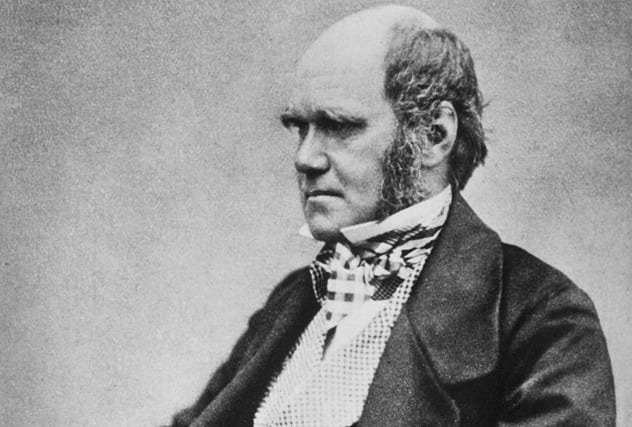
Darwinism is based on the belief that certain life-forms possess the ability to acquire more useful traits than others. This allows those organisms to survive more adverse conditions, while other, lesser ones do not. Thus, these superior life-forms are the ones that “deserve” to live because of their physical superiority. Over time, these extra traits produce entirely new groups of individuals born with advantages over others when it pertains to survival. So, in essence, these newer groups become the more evolved races and continue to thrive due to the concept of “the survival of the fittest” or “natural selection,” which is the very foundation of the theory of evolution.
Darwin wasted no time applying this concept to human beings, maintaining that the white races were superior to the rest of humanity. This ideology evolved directly into what is known today as eugenics, which is a social philosophy that promotes improving human hereditary traits by various means of artificial intervention, including genetics. The stated goal of eugenics is to create more intelligent and healthier people in order to save on natural resources. The opponents of eugenics argue that it is not only highly immoral but isn’t even based on sound science. Looking back, especially at World War II and the Nazis, it is more than clear that the proponents of Darwinism have done a very good job of concealing this obvious form of racism throughout the decades.[5]
5 Can Neo-Darwinism Save the Theory Of Evolution?
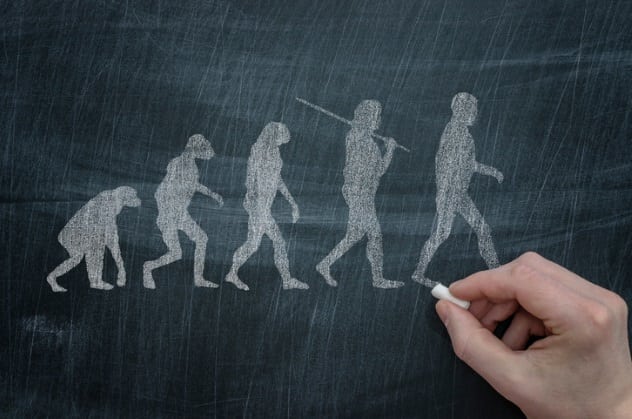
Neo-Darwinism is an attempt by the supporters of evolutionary theory to both repair the reputation of the scientist they hold in such high esteem and to reset their beliefs to better suit the times. The reason for this is simple: They want to continue explaining life on this planet without the need for a supernatural being. But the problem is that Darwinism has turned out to be nothing less than an embarrassment for them.[6]
There is no risk in asserting that Darwin was strongly racist due to his attitude toward people of color, and this discriminatory attitude extended to women as well, who he felt were inferior to men. In effect, Neo-Darwinism is nothing short of a rear-guard action, allowing Darwinian proponents to find higher ground from which to defend future attacks.
4 Can Mutations Trump Mendelian Genetics?
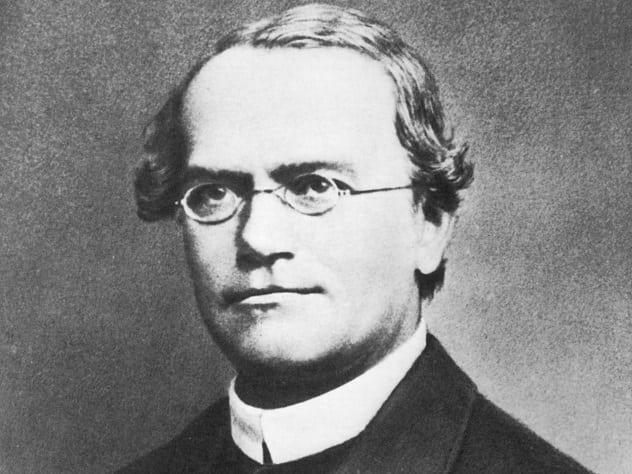
According to Mendelian genetics, life-forms cannot, and do not, change over time—so genetic mutations are almost always harmful. Darwinism claims exactly the opposite—that genetic mutations are beneficial and are the main mechanism that drives evolution. The father of genetics, Gregor Mendel, was a contemporary of Darwin. He was also the master of a discipline that Darwin knew virtually nothing about: genetics, which is the same discipline his followers attempt to insert into the Darwinian framework.[7] In turn, this produced Neo-Darwinism.
Now, the problem is that this is like saying that if a tornado went through a junkyard full of damaged aircraft enough times, it would create a fully functional flying machine, which is obviously absurd. We all know that a tornado has never been observed creating anything but death and destruction and that only with intelligence added could something like a tornado, or wind, be transformed into something useful. For example, the energy created by a wind farm, which is vaguely similar to a tornado, could be used to power a factory that makes flying machines.
Unfortunately, though, many are under the false impression that a chance mutation can combine and create genetic information resulting in a beneficial mutation for the organism. Evolutionists claim that examples of this exist in nature, and they cite several. One concerns people inflicted with sickle cell anemia, a very serious blood disease. Doctors discovered that patients with sickle cell anemia were more likely to survive by contracting malaria as a direct result of the blood disorder. Evolutionists call this a “beneficial mutation” and “evidence” of their theory in action.
3 The Illusion Of Intelligent Design

This concept is so lacking in logical reasoning that it does not even need to be rebuked, so I’ll just let Professor Dawkins sum it up for you. He wrote the following in The Blind Watchmaker: Why the Evidence Reveals a Universe without Design:
Natural selection is the blind watchmaker, blind because it does not see ahead, does not plan consequences, has no purpose in view. Yet the living results of natural selection overwhelmingly impress us with the appearance of design as if by a master watchmaker, impress us with the illusion of design and planning. The purpose of this book is to resolve the paradox to the satisfaction of the reader, and the purpose of this chapter is further to impress the reader with the power of the illusion of design.[8]
Okay, just remember this: The next time you look at your watch or jump into your car, you only think you see intelligent design. Simply put, this concept is not science.
2 Irreducible Complexity—The Amazing World Of Small

“Irreducible complexity” is a term that has sent many shivers down the spine of the scientific community ever since it was first coined and continues to do so today. And with good reason. The science of molecular biology has advanced dramatically since the 19th century. To biologists back then, a cell was less complicated than a doorknob. In complete contrast, we know today that a human cell has more microscopic complexity than some spacecraft do. Indeed, had Darwin benefited from the same technology we have now, he would have undoubtedly revised his theory—and in more ways than one.
Scientists today compare the complicated biological structures of a single human cell to a state-of-the-art automobile engine, which is also a very complex system and one that will not operate if just one key part is removed from it. This is the very definition of irreducible complexity,[9] which, at the very least, creates a huge “chicken or egg” problem. as you could well imagine. For instance, a simple question like, “What came first, the bowels or the esophagus?” still perplexes evolutionary scientists today.
1 Darwin And His Legacy
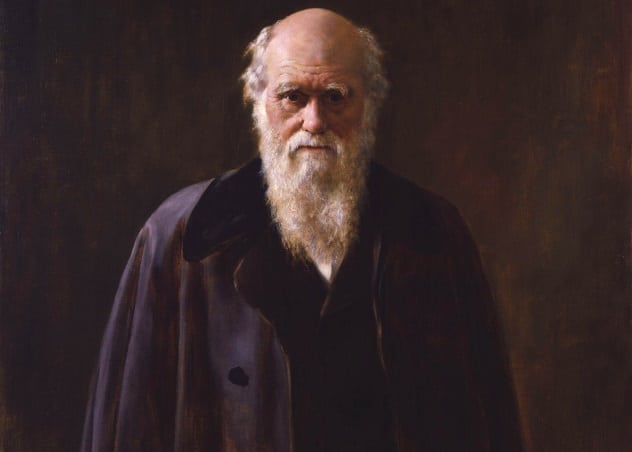
Darwinism suggested a theory of human origins to the world in an attempt to replace the belief in a divine creator, a belief that has spanned across a myriad of cultures and religions around the entire globe. Now, in this new Neo-Darwinism age, all that counts is “the survival of the fittest,” since “only the strong survive.” According to evolutionary theory, human suffering is basically irrelevant, and responsibility for one’s own actions is no longer a factor, now that life supposedly only evolved by pure chance. Darwinism, and the rampant racism that resulted from it,[10] helped spawn some of the worst human suffering in the history of mankind, yet it still clings to life in many overt and even unseen ways.
On a closing note; in the first edition of On the Origin of Species, Darwin made the claim that if a bear was to spend enough time in the water, it would eventually turn into something akin to a whale. Actually, we know that if a bear spends too much time in the water, it will drown. He removed the comment from all of his subsequent editions of the famous tome, and since this is the very foundation of evolution, many wonder just how confident he was in his own theory.
I live in Northwestern Pennsylvania in the United States of America, in “one of the Original 13” I like to say, where I grew up with a fascination for collectibles like baseball cards, coins, stamps, and old bottles, just to name a few. Always a self-starter, I’ve taught myself many different things and have ended up with a large variety of skills and hobbies in both the old and new and have recently started putting them to use on the Internet. I have been writing in several capacities for decades.
Read more facts about famous scientists on 10 Things You Probably Didn’t Know About Albert Einstein and 10 Strange And Interesting Facts About Charles Darwin.







